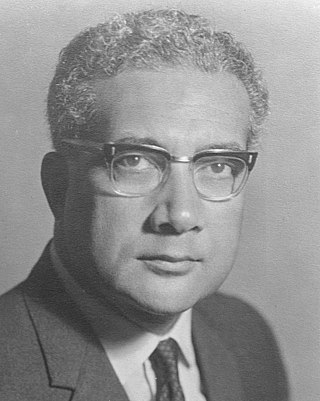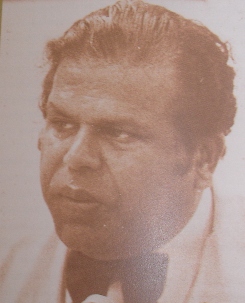
Timoci Uluivuda Bavadra was a Fijian medical doctor who founded the Fiji Labour Party and served as the Prime Minister of Fiji for one month in 1987.

RatuSir Kamisese Mara, was a Fijian politician who served as Chief Minister from 1967 to 1970, when Fiji gained its independence from the United Kingdom, and, apart from one brief interruption in 1987, as the first Prime Minister from 1970 to 1992. He subsequently served as president from 1993 to 2000.

The Alliance Party, was the ruling political party in Fiji from 1966 to 1987. Founded in the early 1960s, its leader was Kamisese Mara, the founding father of the modern Fijian nation. Widely seen as the political vehicle of the traditional Fijian chiefs, the Alliance Party also commanded considerable support among the Europeans and other ethnic minorities, who, although comprising only 3–4% of Fiji's population, were over represented in the parliament. Indo-Fijians were less supportive, but the Fijian-European block vote kept the Alliance Party in power for more than twenty years.

Siddiq Muhy'Ddin Kwaja, officially known as Siddiq Moidin Khoya was a Fijian politician, Statesman and Opposition leader. He succeeded to the leadership of the mostly Indo-Fijian National Federation Party (NFP) on the death of the party's founder, A. D. Patel, in October 1969, remaining in this post until 1977. He later served a second term as leader of the NFP, from 1984 to 1987.

Jai Ram Reddy, CF was an Indo-Fijian politician, who had a distinguished career in both the legislative and judicial branches of the Fijian government. In 1998, he received Fiji's highest honour, the Companion of the Order of Fiji, in recognition of his services to his country.

RatuSir George Kadavulevu Cakobau was a Fijian statesman and athlete. A great-grandson of Ratu Seru Epenisa Cakobau, the paramount chief of Bau who had unified all the tribes of Fiji under his reign in the mid-1800s, Ratu Sir George held the traditional titles of Vunivalu of Bau and Tui Levuka and thus was considered by many as Fiji's highest-ranking traditional chief. Ratu Cakobau was appointed Governor-General of Fiji in 1973, becoming the first indigenous Fijian to serve as the viceregal representative of Elizabeth II, Queen of Fiji.

General elections were held in Fiji between 15 and 29 April 1972, the first since independence from the United Kingdom in 1970. They were characterised by the lack of rancour between racial groups, typical of the 1966 general election and the 1968 by-elections.

Early general elections were held in Fiji between 17 and 24 September 1977. They followed elections in March which resulted in a hung parliament and no party able to gain a majority. The new election resulted in a landslide win for the Alliance Party (Fiji) led by Prime Minister Kamisese Mara, which won 36 seats out of 52. It was aided by a split in the main opposition, the National Federation Party (NFP) and a decline in support for the Fijian Nationalist Party.

General elections were held in Fiji between 10 and 17 July 1982. The paradoxical results were both a triumph and a setback for the Alliance Party of the Prime Minister, Kamisese Mara. The Alliance received 52% of the popular vote, only slightly down on its previous total, but won only 28 seats, eight fewer than in the previous elections of September 1977. Part of the reason for this discrepancy was that the slight surge in support for Mara's Alliance in the Indo-Fijian community, from 14 percent to 16 percent, was not sufficient to translate into seats in Fiji's communal electoral system, and did not therefore off-set losses among the ethnic Fijian community, particularly in the west of the country. The Western United Front of Osea Gavidi won only two seats, but split the vote, allowing the National Federation Party (NFP), with which it tactically allied itself, to gain seven seats for a total of 22. The NFP, which had split into two factions before the previous elections, had been reunited.

General elections were held in Fiji between 8 and 15 May 1999. They were the first election held under the revised Constitution of 1997, which instituted a new electoral system and resulted in Mahendra Chaudhry taking office as Fiji's first Indo-Fijian Prime Minister, following a landslide victory for the Fiji Labour Party. It was also a wipeout loss for the incumbent Soqosoqo ni Vakavulewa ni Taukei (SVT) government of Sitiveni Rabuka, which lost all but eight seats and won less seats than the Fijian Association Party (FAP).

The National Federation Party is a Fijian political party founded by A. D. Patel in November 1968, as a merger of the Federation Party and the National Democratic Party. Though it claims to represent all Fiji Islanders, it is supported, in practice, almost exclusively by Indo-Fijians whose ancestors had come to Fiji between 1879 and 1916, mostly as indentured labourers. However, in the 2018 general election, the party recorded a considerable change in its support base due to the inclusion of more indigenous Fijian candidates.

Fiji's parliamentary election of March 1977 precipitated a constitutional crisis, which was the first major challenge to the country's democratic institutions since independence in 1970.

Until the abolishment of communal constituencies in the Fijian electoral system in 2014, there was very little cross-ethnic voting in Fiji. In communal constituencies, electors enrolled as ethnic Fijians, Indo-Fijians, Rotuman Islanders, or General electors vote for a candidate of their own respective ethnic groups, in constituencies that have been reserved by ethnicity. Other methods of choosing parliamentarians came and went, but this feature was a constant until their final abolition in the 2013 Constitution.

Western United Front (WUF) was an ethnically Fijian political party formed prior to the 1982 elections and contested the election in coalition with the National Federation Party . The party was in response to the disenfranchisement of indigenous peoples in the Western Provinces of Viti Levu as despite the presence of major economic drivers of the country located in their areas they lack representation on the decision making table of the country.
Raojibhai Dahyabhai Patel was an Indo-Fijian lawyer and politician, who was better known as the younger brother of A. D. Patel. To distinguish between the two, he was generally referred to as R.D. A member of parliament from 1966 until 1976, he was Speaker of the House of Representatives between 1972 and 1976.
James Shankar Singh, MBE was a Fiji Indian farmer, businessman, social worker and politician who served as a Minister in the Alliance Government of Ratu Sir Kamisese Mara. Like many Fiji Indian politicians of the era, he joined the Alliance Party with a belief in mutiracialism, but was disappointed with the Alliance Party's appeal to Fijian nationalism after 1977 and left the Alliance to join the National Federation Party.

Karam Chand Ramrakha was a former Fiji Indian lawyer, union leader and politician, who served in colonial Fiji's Legislative Council and independent Fiji's House of Representatives from 1966 to 1982.
Mohammed Taiyab Khan was an Indo-Fijian politician and lawyer. Between 1966 and 1977 he served as a member of the Legislative Council, Senate and House of Representatives. He was also Minister for Commerce, Industries and Co-operatives from 1972 to 1976.
RatuOsea Gavidi was a Fijian politician and indigenous chief. He was prominently involved in defending the interests of the indigenous people in the western part of Fiji, seeking to establish their political autonomy, then their independence.










